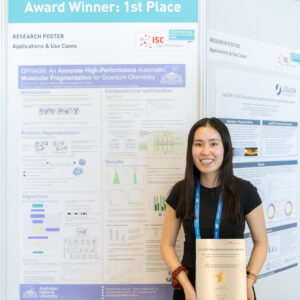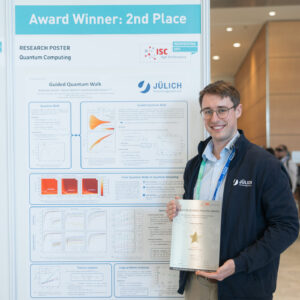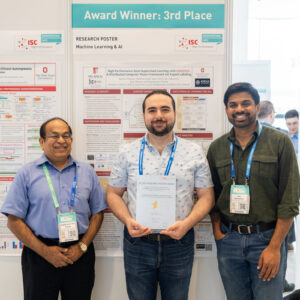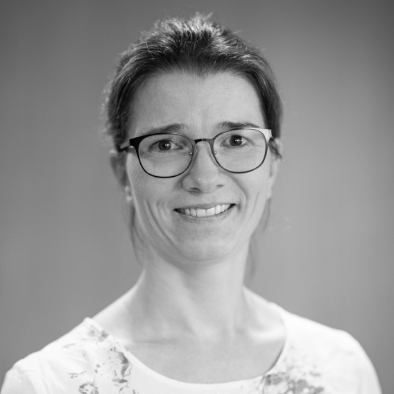Research Poster
SUBMISSION
SESSIONS
June 10-12, 2025
RESEARCH POSTER SUBMISSION

Research Poster Chair
Sadaf Alam, University of Bristol, United Kingdom
RESEARCH POSTER Deputy CHAIR
Tanzima Islam, Texas State University, USA
The ISC Research Poster Session provides a global platform to showcase your latest research results, projects, and innovations to your peers in high performance computing and related domains.
CLOSED
Full Submission Deadline
MAR 5, 2025
Notification of Acceptance
All Dates
MAY 19, 2025 11:59 PM AOE
Final Poster due
JUN 11, 2025 1:30-2:15 PM
Poster Pitch
JUN 11, 2025 2:15-4:15 PM
Poster Reception
JUn 10-12, 2025
Research Poster on Display
INFORMATION FOR SPEAKERS
For guidance on preparing and delivering your presentation, please refer to our Speaker Manual, which provides all necessary details for your upcoming contribution at ISC.
TOPIC AREAS
System Architecture & Hardware Components
- Beyond Moore’s Law
- Composable Disaggregated Infrastructure
- Data Center Infrastructure and Cooling
- Emerging Computing Technologies
- Extreme-scale Systems
- Heterogeneous System Architectures
- Interconnects and Networks
- Memory Technologies and Hierarchies
- Storage Technologies and Architectures
- Sustainability and Energy Efficiency
Programming Environments & System Software
- Compiler and Tools for Parallel Programming
- Energy Management
- HPC in the Cloud and HPC Containers
- Parallel File Systems
- Parallel Programming Languages
- Resource Management and Scheduling
- Runtime Systems for HPC
- System and Performance Monitoring
Algorithms, Methods & Performance
- Extreme-scale Algorithms
- Mixed Precision
- Novel Algorithms
- Numerical Libraries
- Optimizing for Energy and Performance
- Performance and Resource Modeling
- Performance Measurement
- Performance Tools and Simulators
Applications & Use Cases
- Application Workflows for Discovery
- Bioinformatics and Life Sciences
- Chemistry and Materials Science
- Computational Physics
- Earth, Climate and Weather Modeling
- Engineering
- Geosciences and Energy Generation
- Industrial Use Cases of HPC, ML and QC
- Visualization and Virtual Reality
Machine Learning & AI
- AI Applications powered by HPC Technologies
- Digital Twins and ML
- High-Performance Data Analytics
- HPC Simulations enhanced by Machine Learning
- HW and SW Design for Scalable Machine Learning
- Large Language Models and Generative AI in HPC
- ML Systems and Tools
Quantum Computing
- Integration of Quantum Computing and HPC
- Quantum Computing – Basics and Theory
- Quantum Computing – Technologies and Architectures
- Quantum Computing – Use Cases
- Quantum Program Development and Optimization
- Simulating Quantum Systems
SuBMISSION GUIDELINES
The ISC 2025 Research Poster Committee will review all submitted research poster proposals.
Required Information
- Poster title
- Poster author information
- Short poster abstract (500 words maximum)
- Extended abstract (1000 words max)
- Topic area (see below)
- Draft of the poster as a PDF file
- The poster does not need to be in its final version. You may change your poster after acceptance, but your submission must be a representative draft of the final poster
- 1-page maximum
- Posters must be submitted as A0 portrait paper size (841 mm x 1189 mm/33.1” x 46.8”) max with a high resolution to ensure readability (e.g., 2384 px × 3370 px at 72 dpi).
- Maximum file size: 10 MB
Review Process
- Each poster is expected to receive a minimum of 3 reviewers
- Poster reviews are single-blind: reviewers will see author names, but authors will not see reviewer names
- Posters will be evaluated based on originality, significance, quality, and clarity
Final Decision
- The poster’s committee will consider all reviews
- Notification of the posters’ outcomes will be sent to the authors
TERMS & CONDITIONS
- The research posters will be displayed from Tuesday, June 10, through Thursday, June 12, 2025.
- By submitting a research poster, you agree that one of the authors will present the work in person at ISC 2025 in Hamburg, Germany.
- Each submitter is allowed to present only one poster onsite. You are welcome to be a co-author but not a presenter for additional poster submissions.
- ISC will grant one author a 50% discount on the conference pass per accepted poster.
- Every accepted research poster will have a concise lightning talk (one minute) within a poster pitch to capture the audience’s interest. The poster reception with snacks and drinks will give special attention to the posters and allow maximum interaction between poster authors and participants. Poster authors must be present at their poster during the entire reception.
- Travel, accommodation, registration fees for other authors, and other such expenses will not be covered by the ISC organizers.
PUBLICATIONS
PDFs of the posters will be published within the event platform for registered attendees.
RESEARCH POSTER AWARDS

Springer, the international publisher specializing in science, technology, and medicine, sponsors the ISC 2025 Research Poster Awards, which recognizes three outstanding research posters selected by the posters committee.
The award includes a cash prize of 500 Euros (first place), 300 Euros (second place), and 200 Euros (third place).
FINALISTS 2025
The three finalists for the research poster awards are:
- DisCostiC: Digital Twin Performance Simulations Unlocking Hardware-Software Interplay
Authored by Ayesha Afzal, Georg Hager, Gerhard Wellein (Friedrich-Alexander-University Erlangen-Nuremberg (FAU), Germany)
- The Art of Process Pinning: Turning Chaos into Core Harmony
Authored by Thomas Breuer, Filipe Guimarães, Wolfgang Frings, Jens Henrick Göbbert, Carina Himmels, Chrysovalantis Paschoulas (Forschungszentrum Jülich, Germany)
- ZeroSum: User Space Utility for Monitoring Hardware and Software Resources for HPC
Authored by Kevin Huck and Allen Malony (University of Oregon, USA)



RESEARCH POSTER COMMITTEE
ISC 2025 Research Poster Committee
- Sadaf Alam, University of Bristol, United Kingdom (Chair)
- Tanzima Islam, Texas State University, United States of America (Deputy Chair)
- Ayesha Afzal, Friedrich-Alexander-University Erlangen-Nuremberg (FAU), Erlangen National High Performance Computing Center (NHR@FAU), Germany
- Sadaf Alam, University of Bristol, United Kingdom
- Shaikh Arifuzzaman, University of Nevada, Las Vegas, United States of America
- Samar Aseeri, KAUST, Saudi Arabia
- Lilit Axner, EuroHPC JU, Luxembourg
- Allison H. Baker, NCAR, United States of America
- Fabio Banchelli, Barcelona Supercomputing Center, Spain
- Rita Borgo, King's College London, United Kingdom
- Kalina Borkiewicz, University of Illinois at Urbana-Champaign (UIUC), United States of America
- Aurelien Bouteiller, The University ot Tennessee, Innovative Computing Lab., United States of America
- Nick Brown, Edinburgh Parallel Computing Centre (EPCC), The University of Edinburgh, United Kingdom
- Jerry Chou, National Tsing Hua University, Taiwan
- Lois Curfman McInnes, ANL, United States of America
- Thomas Fahringer, University of Innsbruck, Austria
- Marta Garcia, BSC, Spain
- Xu Guo, Edinburgh Parallel Computing Centre (EPCC), United Kingdom
- Aleksandar Ilic, INESC-ID, Instituto Superior Técnico, Universidade de Lisboa; Instituto Superior Técnico, University of Lisbon, Portugal
- Nusrat Islam, AMD, United States of America
- Tanzima Islam, Texas State University, United States of America
- Niclas Jansson, KTH Royal Institute of Technology, Sweden
- Andreas Kloeckner, University of Illinois at Urbana-Champaign, United States of America
- Andreas Knuepfer, Technische Universität Dresden, ZIH, Germany
- Rika Kobayashi, Australian National University, Australia
- Zhiling Lan, Illinois Institute of Technology, United States of America
- Johannes Langguth, Simula Research Laboratory, University of Bergen, Norway
- Jay Lofstead, Sandia National Laboratories, University of New Mexico, United States of America
- Hatem Ltaief, KAUST, Saudi Arabia
- Jakob Luettgau, Inria, France
- Sabine Mehr, GENCI, HQI, France
- Carla Osthoff, National Laboratory of Scientific Computing, Brazil
- Michael Ott, Leibniz Supercomputing Centre, Germany
- Guray Ozen, Google, Switzerland
- Heidi Poxon, Amazon, United States of America
- Kento Sato, Lawrence Livermore National Laboratory, National Institute of Advanced Industrial Science and Technology, United States of America
- Naw Safrin Sattar, Oak Ridge National Laboratory, United States of America
- Osman Seckin Simsek, University of Basel, Switzerland
- Suyash Tandon, AMD, University of Michigan, United States of America
- Christian Terboven, RWTH Aachen University, Germany
- Ana-Lucia Varbanescu, University of Twente, University of Amsterdam, Netherlands
- Marion Weinzierl, University of Cambridge, United Kingdom
